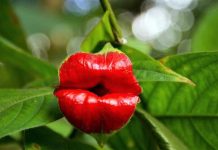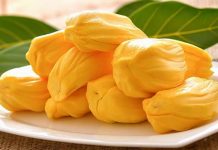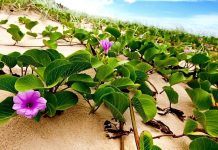Scientific name: Musa paradisiaca L.
Family: Musaceae
Synonym: Musa sapientum L.
Bengali/Vernacular name: Aittakola, Kola, Bichikola.
Tribal name: Kattoli kola (Chakma), Chuci (Chak), Banhla (Lushai), Nwpupi (Marma), Deng-li (Murang), Nanchang (Pangkhoa), Naa-proo-apang (Rakhaing).
English name: Seeded banana, Plantain.
Description of the plant: A tree-like herb, up to 9 m tall. Leaves petiolate, blade oblong, 1-3 m long, usually ragged in appearance, splitting between the transverse parallel veins. Inflorescence a drooping spike, 1 m long, peduncle thick. Fruit oblong, trigonous, 12-15 cm long, tapering to the base and apex, full of seeds, yellowish when ripe.

Plant parts used: Root.
Medicinal uses: Pea-sized pills made from roots of the plant are advised to take twice a day (one pill each time) until the boils in rectum is cured.
Cottonseed-sized pills are made from the roots of the plant is given with warm water three times a day (one pill each time) until the lipoma is cured.
Juice extracted from roots of the plant is taken for the treatment of worm and dyspepsia.
Root juice with some sugar is taken for the treatment of dysuria.
Distribution: Cultivated throughout Bangladesh.
Is this plant misidentified? If yes, please tell us….














